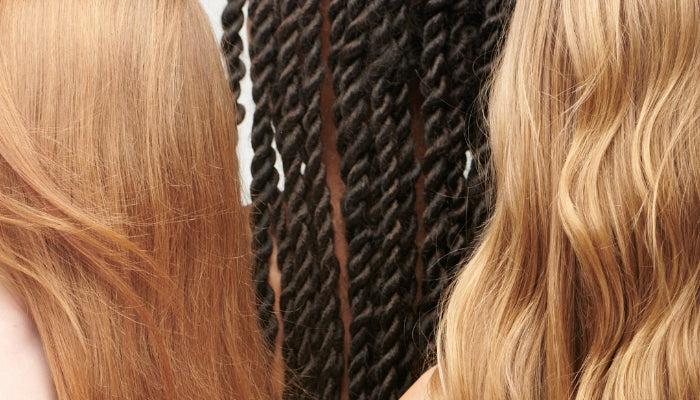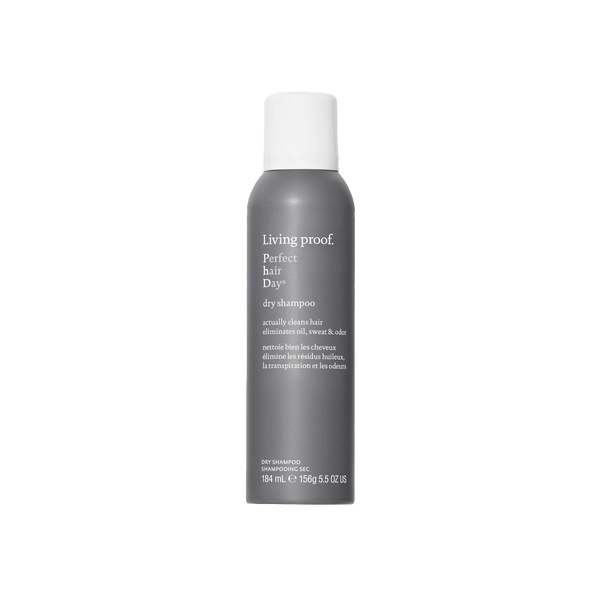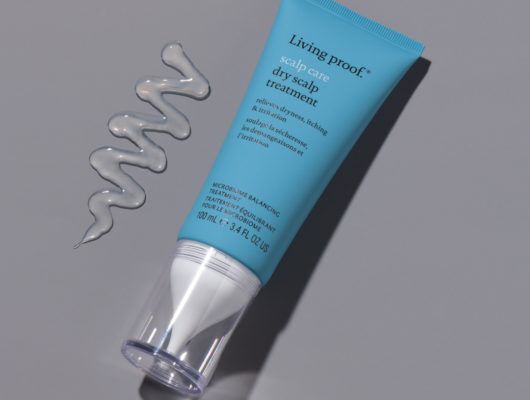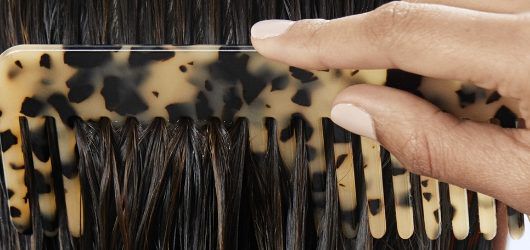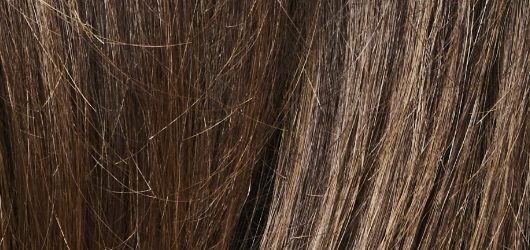The effects of hard water on hair [+ how to treat it]
![The effects of hard water on hair [+ how to treat it]](http://www.livingproof.com/cdn/shop/articles/HardWater_Header-530x251.jpg?crop=center&height=251&v=1748620298&width=530)
Oftentimes, when we experience hair-related challenges, we’re quick to blame it on the products we use or some aspect of our haircare routine. What you might not realize, though, is that water quality can also have an effect on the condition of your hair.
That’s right: Hard water, in particular, can lead to buildup, leaving hair dull, flat or even frizzy. In this article, we’ll take a closer look at the effects of hard water on hair, including how to recognize, treat, and prevent hard water buildup.
What is hard water?
To understand the impact of hard water on hair, it’s important that we first explain what hard water is.
Hard water is water that contains a high concentration of dissolved minerals, primarily calcium and magnesium. The higher the mineral content of water, the “harder” it’s considered to be. Hard water typically forms when rainwater seeps through the ground, flowing through geological formations rich in calcium and magnesium and dissolving these minerals along the way.
This hardened water can find its way into water sources, such as underground aquifers or wells, and eventually into your home’s tap water. Over time, these mineral deposits can collect on shower heads, shower tiles, sink drains, toilet bowls, dishwashers, and even on your hair.
Signs of hard water in your home
It’s fairly easy to determine whether you have hard water. You can even see signs of it around your home, such as:
- Brown or reddish stains around shower drains and toilet bowls
- White, chalky residue around shower heads, shower doors, and faucets
- Cloudy water or water that doesn’t create suds when mixed with soap
- Cloudy or spotted glassware and residue on silverware and dishware
- A film-like residue on hands after washing them
If you’re still unsure, you can call your local water municipality to request a water quality report or conduct an at-home test to assess the hardness of your tap water.
How does hard water affect hair?

Hair is a complex structure, with each individual strand composed of three layers: the cuticle (the outermost layer), the cortex (the middle layer), and the medulla (the innermost layer). The cuticle, in particular, consists of overlapping shingles, known as scale cells, and serves as a protective shield over the inner layers.
When hair is treated with hard water over long periods of time, mineral deposits can accumulate on the hair shaft, just the same as they would on your shower head. Though these deposits are microscopic, they can still have a significant impact on the health and condition of your hair.
Here are just some of the ways hard water can damage your hair:
- Hair weakening: The excess mineral buildup from hard water can decrease the baseline strength of hair and weaken the overall structure, leaving the cuticle layer dry and brittle.
- Breakage: As the cuticle layer dries out, it becomes more prone to breakage, exposing the cortex and medulla and negatively impacting your hair’s overall health. From an aesthetic standpoint, this can lead to split ends, frizziness, and flyaways. In some instances, breakage can even cause hair to appear thinner.
- Stiffening: As hard water residue accumulates on the shaft, hair can become more stiff and less pliable.
- Limpness: The less pliable your hair, the harder it is for it to hold different styles, which can give it the appearance of being flat or limp.
- Fading: For those with color-treated hair, the ion deposits from calcium and magnesium can create a barrier on the hair shaft. This barrier prevents the color molecules used in the dyeing process from properly adhering and can cause color-treated hair to fade faster. Hard water that contains iron can also add a brassy tone to your hair.
- Greasiness: The mineral content of hard water can counteract some of the ingredients in your favorite shampoo and conditioner, making them less effective and leaving hair feeling dirty, even when fresh out of the shower. Even if you are able to wash your hair effectively, hard water residue can leave hair looking and feeling greasy.
- Scalp irritation: The effects of hard water on hair aren’t limited to the hair shaft — it can also cause your scalp to dry out, leading to irritation, inflammation, and flakiness. Hard water buildup can also leave a film on your scalp, clogging hair follicles and preventing new growth.
7 signs your hair might be affected by hard water
Now that you understand how hard water can affect hair, let’s look at the tell-tale signs of hard water damage to your hair:
1. Your hair breaks more easily
Although some shedding is natural and to be expected, hard water can weaken hair, causing it to break more easily. The key to distinguishing hair breakage due to hard water damage from natural shedding is to take a closer look at the loose strands. If the strand is full-length, with a follicle bulb (a small white or translucent bump) at the root end and a tapered tip at the other, it’s likely a shed hair. If, however, the strand is short with a blunt or uneven end, it’s likely a broken hair.
2. You have split ends
Split ends are another sign of hard water damage to hair. Split ends are a form of breakage in which the hair fibers split up the shaft. Split ends typically have frayed edges, with the tip of the strand separating in a V-shape (or, in some cases, a W-shape). Split ends are fairly common and can often be remedied through regular trims, but if you’re seeing persistent split ends even after visiting the salon, they may be the result of hard water.
3. Your hair tangles easily
As noted, hard water buildup on hair can create a stiffening effect, causing hair to become less pliable and lose its natural sheen. This stiffening, when combined with the filmy residue hard water leaves on the cuticle, can cause friction between strands, leading hair to tangle more easily.
4. Your hair has difficulty holding different styles
If your curls fall limp the second you set them, hard water could be the culprit. Many people have reported seeing mixed results when styling hair treated with hard water. Those with color-treated hair may find that their hair fails to hold styles as well, or at all. Conversely, those with unbleached hair may find that their hair holds styles better after hard water.
Either way, pay close attention to how your hair typically behaves after styling — any sudden changes could be the result of hard water.
5. Your hair is frizzy
Frizz — which occurs when neighboring hairs do not lay in the same direction, creating a disordered appearance — is one of the most common signs of hard water damage to hair. Although frizz can be caused by a number of things, including humidity in the air, dryness, or damage from excess heat styling, studies show that hard water can cause changes to your hair texture, contributing to the appearance of frizz.
6. Your hair is dry
Even if you consistently use moisturizing products to restore your hair’s health, hard water buildup can prevent that moisture from penetrating the hair cuticle. If you notice that your leave-in conditioner or hair mask isn’t as hydrating as you hoped it would be, it could indicate that your tap water has elevated mineral content levels.
7. Your hair appears thin
Although mineral buildup does not cause hair to thin or fall out, breakage caused by hard water damage can make your hair appear thinner. If you find that your hair has started to look limp or thin and have ruled out hormonal changes or health conditions, hard water could be the reason why.
How to treat hard water on hair
As frustrating as hard water damage to your hair can be, there are some easy measures you can take to address it, including:
- Using a clarifying shampoo: Clarifying shampoos such as the Living Proof Clarifying Detox Shampoo contain chelating agents and surfactants to remove chemicals, toxins, and other unwanted buildup from hair. You can use clarifying shampoo on a regular or semi-regular basis to help remove hard water buildup, as well as product residue and excess oil. Just be mindful not to use it too often, as clarifying shampoos can also strip your hair and scalp of natural oils, leaving them dry.

- Installing a water softener: A water softener is a device or system that reduces the concentration of dissolved minerals from water, making it “softer” and less likely to cause scale buildup. Most water softeners use a process called “ion exchange” to replace calcium or magnesium with water-soluble minerals such as sodium or potassium. There’s a wide variety of water softeners to choose from, many of which are easy to install.
- Adding a water filter to your shower head: Though not as effective as a water softening system, certain water filters can slightly reduce the mineral content of tap water, as well as filter out chlorine, sediment, and other impurities.
- Washing your hair — the right way: Washing your hair might seem simple enough, but when it comes to hard water, how you wash your hair can make a big difference. When applying shampoo — clarifying or otherwise — focus on your scalp, gently massaging the product in. Try rinsing with cold water instead of warm, as this can help seal the cuticle and prevent additional damage. If hair loss is a concern, rinse in the direction of natural hair growth to reduce unnecessary friction.
- Applying a hair mask to restore moisture: While a moisturizing mask won’t treat or prevent hard water hair damage, it can address dryness and weakness caused by high mineral concentrations in your water. To see best results, be sure to choose the right mask for your hair type and texture, apply it evenly, and let it sit for at least 20 minutes before rinsing.
- Scheduling a clarifying treatment: A clarifying shampoo can go a long way toward mitigating the effects of hard water on hair, but, depending on your degree of hard water damage, you may need to call in a professional. Many salons offer specialized clarifying treatments to remove excess oil, product residue, and hard water scale that have built up over time.
Clarifying shampoo: what it is + how it helps
As mentioned, a clarifying shampoo is a special form of shampoo that uses chelating agents to remove residue from hair. Chelating agents are chemical compounds that bind to mineral deposits that have accumulated on the hair shaft, forming stable, water-soluble complexes that effectively isolate the mineral ions. Once a chelating agent has bonded to a mineral deposit, that deposit can be easily rinsed away, leaving hair clean and free from buildup and restoring its natural texture.
Say goodbye to hard water buildup on hair
Don’t let hard water stand in the way of your best hair day. Living Proof’s Clarifying Detox Shampoo uses magnetic polymers, a gentle surfactant blend, and naturally-derived chelating agents to deeply cleanse and remove hard water buildup without stripping your hair of its natural oils, while activated charcoal detoxifies, absorbing odors and impurities.
BEFORE CLARIFYING DETOX SHAMPOO

AFTER CLARIFYING DETOX SHAMPOO

The end result? A clean slate primed for more effective treatment. And when paired with our replenishing Restore Repair Mask, you’ll restore much-needed moisture and reveal soft, shiny, manageable hair.
We are the science. You are the Living Proof. Explore our full line of haircare products today.
Frequently asked questions
Are certain hair types more prone to hard water damage?
Yes. Hair that is naturally porous or that has been chemically treated (bleached, dyed, permed, or relaxed) may be more susceptible to the effects of hard water. The reason for this is that the minerals in hard water can more easily penetrate the shaft of highly porous hair, exacerbating dryness and dullness.
Can hard water cause hair loss?
While hard water does not cause hair loss, excessive buildup can cause hair to appear thinner. If left untreated, hard water buildup can cause the hair’s cuticle layer to dry out, leaving it prone to breakage.
What is the best shampoo to use for hard water?
A clarifying shampoo can help remove hard water buildup from hair, restoring its natural shine and texture. Living Proof’s Clarifying Detox Shampoo, in particular, uses magnetic polymers and naturally-derived chelating agents to eliminate buildup without stripping hair of its natural oils, leaving you with a clean slate to pave the way for treatments to work more effectively.
Are there natural remedies for hard water?
While there are no natural remedies for treating the heavy metals in hard water, it is possible to use natural remedies to address some of the damage caused by hard water, such as coconut oil to restore moisture or apple cider vinegar to remove buildup.
How can I protect my hair from hard water damage?
If you have hard water in your home, the best way to prevent hard water damage to your hair is to invest in a water softening system, which replaces hard minerals such as calcium and magnesium with water-soluble minerals, such as sodium and potassium. If you already have hard water buildup on your hair, you can treat it by using a clarifying shampoo, followed by a moisturizing hair mask.
Sources
- The Open Access Journal for Life & Environment Research, "The structure of people’s hair, https://www.ncbi.nlm.nih.gov/pmc/articles/PMC4201279/.”
- International Journal of Trichology, "To Evaluate and Compare Changes in Baseline Strength of Hairs after Treating them with Deionized Water and Hard Water and its Role in Hair Breakage, https://www.ncbi.nlm.nih.gov/pmc/articles/PMC4201279/.”
- Living Proof, "Hair Breakage 101: Causes & Treatments, https://blog.livingproof.com/hair-breakage-101-causes-treatments/.”
- Living Proof, "How to Get Rid of Frizzy Hair: 15 Top Tips, https://blog.livingproof.com/how-to-get-rid-of-frizzy-hair/.”
- Living Proof, "10 Colored Hair Tips for Long-Lasting Color & Healthy Hair, https://blog.livingproof.com/10-colored-hair-tips/.”
- Living Proof, "Split Ends 101: Causes & Treatments, https://blog.livingproof.com/split-ends-101-causes-treatments/.”
- International Journal of Cosmetic Science, "The structural implications of water hardness metal uptake by human hair, https://pubmed.ncbi.nlm.nih.gov/21923661/.”
- Living Proof, "Why Is My Hair So Frizzy? 8 Common Causes & Prevention Tips, https://blog.livingproof.com/why-is-my-hair-so-frizzy/.”
- International Journal of Trichology, "Hair Cosmetics: An Overview, https://www.ncbi.nlm.nih.gov/pmc/articles/PMC4387693/.”
- U.S. Department of Energy, "Purchasing and Maintaining A Water Softener, https://www.energy.gov/energysaver/purchasing-and-maintaining-water-softener.”
- Living Proof, “Hair Chelating 101: Your Ultimate Guide, https://blog.livingproof.com/chelating-shampoo/.”
- Living Proof, “What Is a Hair Mask?, https://blog.livingproof.com/what-is-a-hair-mask/.”
- Living Proof, “How to Use a Hair Mask, https://blog.livingproof.com/how-to-use-a-hair-mask/.”
- Living Proof, “101 Guide: What is Hair Porosity?, https://blog.livingproof.com/what-is-hair-porosity/.”
- Tags: Hair Health
